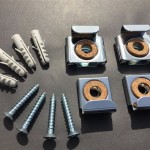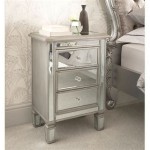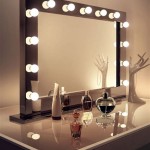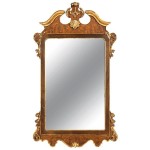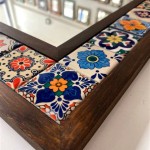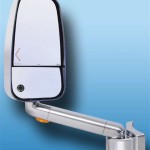Are Mirrors Good For Birds? A Comprehensive Look at the Potential Harm
Mirrors, ubiquitous in human environments, present a unique challenge for birds. While seemingly harmless objects, mirrors can trigger a range of behaviors in birds, some of which are detrimental to their well-being. The interaction between birds and mirrors stems from their perception of reflections and the subsequent actions they undertake, often based on mistaken identity.
The instinctive responses of birds to mirrors can be categorized into territorial defense, attempted socialization, and ultimately, frustration and stress. Understanding the mechanisms behind these responses is crucial in determining whether mirrors are ultimately beneficial or harmful to birds, both in domestic and wild settings.
The core issue lies in a bird's inability to recognize its own reflection as itself. Instead, they perceive the image as another bird, potentially a rival or a potential mate. This misidentification triggers a cascade of behaviors based on their inherent instincts.
Territorial Defense and Aggression
One of the most common reactions to a mirrored reflection is territorial aggression. Birds are naturally inclined to defend their designated space, whether it be a nesting area, feeding ground, or personal territory within a cage. When a bird perceives another of its species within its territory (as represented by its reflection), it often initiates aggressive behaviors.
These behaviors can manifest in several ways. A bird might repeatedly fly toward the mirror, attempting to scare away the perceived intruder. They may peck or strike the mirror surface, causing physical damage and potential injury to themselves. Chirping, squawking, and other vocalizations intended to intimidate the "rival" are also common. In some cases, birds may even regurgitate food as a display of dominance or attempt to feed the reflection, a confused attempt to establish dominance or courtship.
This persistent aggression can have several negative consequences. The constant physical exertion can lead to fatigue and exhaustion. The frustration of not being able to "defeat" the reflection can cause significant stress, weakening the bird's immune system and making it more susceptible to illness. Furthermore, the repetitive pecking and striking can result in injuries, such as beak damage, head trauma, or foot injuries from slipping on the smooth surface of the mirror.
The intensity and duration of this territorial aggression vary depending on the species of bird, its individual temperament, and the size and placement of the mirror. Some birds may exhibit only mild aggression, while others become completely obsessed with the reflection, dedicating a significant portion of their day to futile attempts to drive it away. This obsessive behavior disrupts their natural routines, such as foraging, preening, and resting, further impacting their physical and mental health.
In wild settings, this territorial response can be equally problematic. Birds flying into windows, mistaking the reflection for open sky or a clear path, is a common occurrence. The impact can cause serious injuries, including concussions, broken bones, and even death. Strategies to mitigate this include applying decals, screens, or other visual deterrents to the exterior of windows to break up the reflective surface.
Attempted Socialization and Mate Attraction
While territorial aggression is a prevalent response, some birds may interpret their reflection as a potential companion or mate. This is particularly common during breeding season when birds are actively seeking partners. The bird may exhibit courtship behaviors towards the reflection, such as preening, singing, and displaying their plumage.
A male bird might try to impress the "female" in the mirror by performing elaborate mating dances or offering food. Similarly, a female bird might solicit attention with submissive postures and vocalizations. The bird expends significant energy and emotional resources in this futile attempt to establish a bond with its reflection.
The problem, of course, is that the reflection is incapable of reciprocating these behaviors. The bird's advances are met with silence and inaction, leading to confusion and frustration. This prolonged lack of response can lead to emotional distress and a sense of isolation, particularly for solitary birds.
In domestic settings, this attempted socialization can be particularly detrimental. A bird kept in isolation with access to a mirror may become fixated on its reflection as a substitute for genuine social interaction. This can hinder its ability to form healthy bonds with other birds or even with its human caretakers. The bird may become overly dependent on the perceived companionship of the reflection, leading to anxiety and distress when the mirror is removed.
The constant frustration of unrequited courtship can also have negative physiological effects. The chronic stress associated with the failed attempts at bonding can suppress the immune system, increase the risk of behavioral problems, and shorten the bird's lifespan.
Frustration, Stress, and Behavioral Problems
Regardless of whether the initial response is aggression or attempted socialization, the underlying consequence of a bird's interaction with a mirror is frustration and stress. The inability to understand the nature of the reflection leads to a cycle of repeated behaviors, each time ending in disappointment or failure.
The constant state of arousal and agitation associated with mirror interactions can manifest in a variety of behavioral problems. Birds may become excessively noisy, exhibiting repetitive chirping, squawking, or screaming. They may develop feather-plucking habits, pulling out their own feathers as a form of self-soothing or as a displacement behavior related to stress. Some birds may become withdrawn and apathetic, losing interest in their surroundings and exhibiting a general lack of energy.
These behavioral problems can be difficult to treat and can significantly impact the bird's quality of life. Addressing the underlying cause – the mirror – is often the first step in resolving these issues. Removing the mirror allows the bird to focus its energy on more productive and fulfilling activities, such as interacting with its environment, foraging for food, and engaging with other birds or humans.
Furthermore, chronic stress can have detrimental effects on the bird's physical health. Prolonged exposure to stress hormones can weaken the immune system, making the bird more susceptible to infections and diseases. It can also disrupt their sleep patterns, leading to fatigue and impaired cognitive function. In severe cases, chronic stress can even contribute to the development of heart problems or other life-threatening conditions.
Therefore, even if a bird does not exhibit overt aggression or courtship behaviors towards its reflection, the potential for underlying frustration and stress should not be underestimated. The absence of obvious symptoms does not necessarily indicate that the mirror is harmless; it may simply mean that the bird is internalizing its stress in a less visible way.
Ultimately, the use of mirrors in bird environments should be approached with caution. While some birds may appear to tolerate mirrors without exhibiting any obvious negative behaviors, the potential for hidden stress and frustration remains. In most cases, the risks associated with mirrors outweigh any perceived benefits, making it advisable to avoid their use in both domestic and wild settings. Prioritizing the bird's psychological and physical well-being requires creating an environment that promotes natural behaviors and minimizes potential stressors, and this often means removing mirrors altogether.
Should I Put A Mirror In My Birds Cage Quora

Are Mirrors Good Or Bad For Pet Birds

Budgie Mirror Behaviour Budgies Guide Omlet

Are Mirrors Bad For Parrots Healthy Vs Unhealthy Behavior
Should I Put A Mirror In My Birds Cage Quora

Never Give Your Budgie A Mirror Do This Instead

Are Mirrors Good Or Bad For Pet Birds

Top Tips To Stop Birds From Ing Their Reflections Wild Bird Food

The Importance Of Toys For Pet Birds Petmate Academy

Stokes Birding Blog Why Is The Cardinal Ing My Window Or Car Mirror Here S

